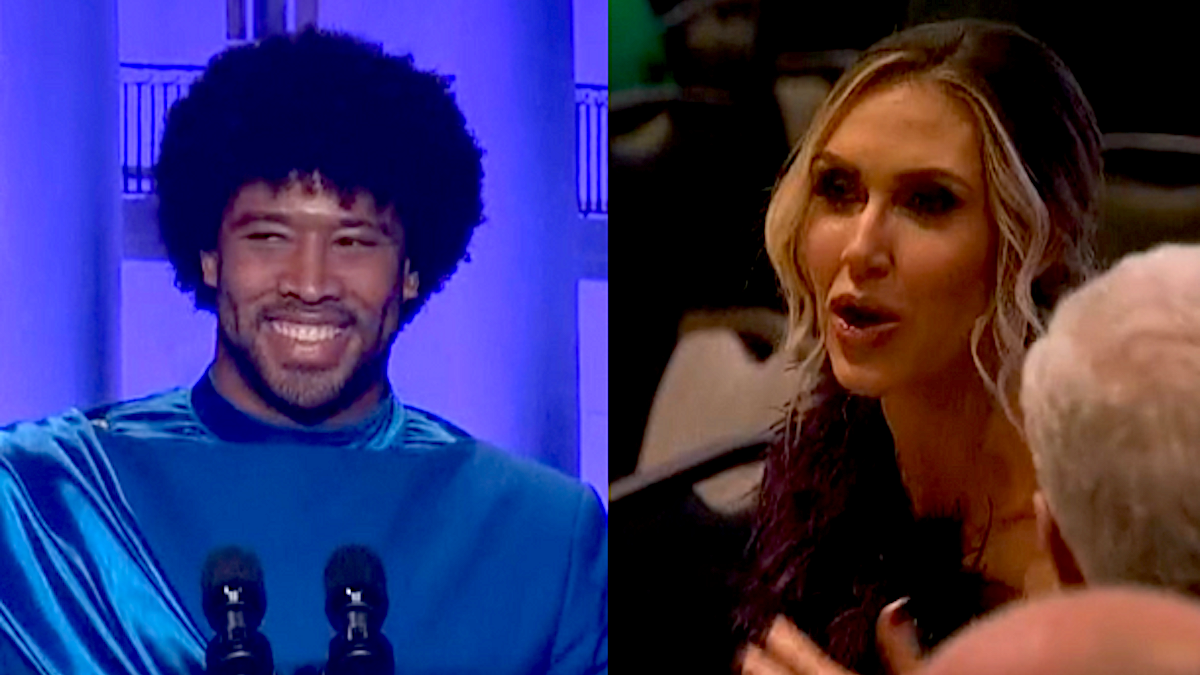
Totalitarianism, according to Hannah Arendt, has a two-fold root and essence: the belief that ‘all things are possible,’ which sets in motion an overwhelming, self-propelled process to make all things possible, and a pervasive and systematic thoughtlessness that robs its victims of their ability to see, and thus to act, beyond its interminable machinations. The perfection of totalitarianism understood in this way is not the ‘rule of one,’ the tyrant consolidating all power in his person and controlling the levers of state. It is rather ‘the rule of nobody’—not to be confused with the absence of rule—the bureaucratic rule proper to a complex adaptive system with no outer horizon and no controlling center… and thus no levers to pull.
There is a pious myth, hallowed by the First Amendment and solemnly passed down from one generation of journalist to the next, that the free press, as ‘the fourth estate’ standing outside the corridors of official power, is a bulwark against absolutism and thus the indispensable guardian of a free society. Now this self-justifying story contains an element of truth inasmuch as the media do indeed have a legitimate job to do. Though journalists often like to say that reporting isn’t stenography, someone really ought to tell us if there is a jam on the Outer Loop or if there is, say, an important murder trial in Philadelphia with vast societal implications. And yet the global media echo chamber routinely exhibits just the sort of systematic thoughtlessness that Arendt thought characteristic of absolutism. The examples are legion, from the routine exaltation of the trivial, to the hysterical and lopsided coverage of the Komen/Planned Parenthood fiasco, to the lionization of Sandra Fluke and Wendy Davis, to the ceaseless celebration of all things gay, to the dismissive treatment of the threat to religious freedom, to the media blackout of the Gosnell trial. The list goes on and on.
This should lead us to question this myth at its foundations and to ask whether there is something wrong with journalism itself and the enormous power wielded by contemporary media, the power to make visible and invisible and thus to mediate what counts for all public purposes as the real world. Much is at stake, after all. The power of the state is limited in principle by the fact that it can only coerce externally through police power and the force of law, whereas the media can coerce more subtly from within, by determining what and how we see and defining the world in which we live and act. An absolute press would more perfectly fulfill Arendt’s conditions for totalitarianism than an absolute state, for in a perfectly totalitarian system—one whose rule is indeed total—no one would ever recognize that he is being coerced.
More Than Dereliction Of Duty
Now just as there is a place for journalism, so there is an obvious difference between good and bad journalism. And against the basic job description of a reporter to…well…report, sins of omission like the Gosnell blackout appear merely as a dereliction of the simple duty to convey the obvious facts. To rest content with this explanation, however, is to excuse ourselves from having to think more deeply about why such facts aren’t obvious and how such mind-boggling negligence could happen in the first place. The answer most ready to hand, the familiar charge of liberal bias if not outright bad will on the part of a partisan media, has obvious warrant. Plus most of these examples have something to do with the sexual revolution, and it is no secret whose side of the revolution the media generally take. Yet bias seems like an unlikely explanation for such colossal blindness on so many important issues—it is not as if the right wing media are demonstrably more insightful than the left wing—and malevolent motives fail to account for what is surely, in many cases, simply a sin of omission committed by otherwise decent people who somehow just can’t see. The problem with this criticism is that it contents itself with a ‘moral’ or ‘political’ diagnosis of ‘bad journalism’ rather than an ‘ontological’ criticism of the essence and first principles of the craft. Perhaps the problem is not merely bad journalism, but good journalism.
Our notion of a free press is shaped of course by our modern notion of freedom, which we can summarize more or less adequately as the ability to act without external restraint, a close cousin of the belief that ‘anything is possible.’ Now while it is true that the state does not restrict the press in any obvious sense (it hardly needs to), examples such as these cannot but raise the question of whether the contemporary press is free even by this standard. Would a reporter who grasps the full gravity of the Gosnell trial or same-sex marriage and who adopts a perspective critical of the zeitgeist be free to work in today’s newsroom? Would she be permitted to pursue these issues and their implications to their logical conclusions?
But it is the standard itself that I mean to question. Absence of restraint is, on a traditional view, a pretty paltry understanding of freedom. A frog acts without restraint; it hops where it will. Yet we would not normally ascribe freedom to it, at least not a full-blown sense of freedom, because so far as we can tell a frog does not deliberate about its reasons for hopping. It hops instinctively in response to immediate stimuli, not because it can be said to understand why it should hop in any given instance or because its hopping expresses any grand design it has for its life. Human beings, by contrast, are free not simply because they can respond spasmodically to stimuli, but because they can understand, act, and order their lives in accordance with what they take to be true and good. And since most of the time we do not want to be deceived, living out this desire requires the ability to distinguish what is truly good from what merely seems so. Human freedom, in other words, is more a matter of reason than a matter of sheer will, which means that human freedom finally depends on truth. This is why thoughtlessness and freedom are ultimately incompatible.
It follows that the greater the scope of one’s reason—the more one understands the true meaning of his actions—the freer he can be said to be, even if understanding this truth limits his range of possibilities in acting. If it is true that intelligence is integral to freedom, then it also follows that a blind, or stupid, or uncomprehending press cannot really be a free press and that a society whose horizons are determined by such a press—a society that cannot really think—cannot really be a free society.
So we must ask: Is there something inherent in journalism itself that induces thoughtlessness and that thus inclines it by nature to ‘totalitarianism’? To address this question, we must take journalism more seriously than it sometimes takes itself—a tall order indeed!—and recognize journalism for what it is: not a mere method, or craft, or tool but a form of rationality, indeed the form of rationality par excellence for a liberal society, one which reflects its basic judgments about the world.
Journalism’s Two Conceits
As a form of rationality, journalism is a species of empiricism which, like all empiricisms, is animated by two conceits. The first is that is that the world is transparent to a method or technique of knowing that requires no real education, formation, or transformation of the knower beyond a rigorous adherence to the method itself. (The j-school, which teaches only method and no real content, is the institutionalized form of this assumption). This is not to deny that many of the best journalists, the sort that NPR perpetually congratulates itself about, are quite disciplined and well educated or that their craft is improved thereby. But these are qualities that belong to the journalist per accidens, that is, qua compassionate soul or inquisitive human being or devotee of Apple products, Terrence Malick films, and Shakespearean sonnets, but not qua journalist. No particular way of life and no deep and integrated knowledge of philosophy, theology, history, literature, or science are strictly necessary to be a journalist and to cover these domains. One needn’t be a true humanist to be a journalist; firm adherence to the method is enough. The second conceit is that this omni-competent method is ‘ontologically’ neutral. Not only is it competent to tell us about everything; as mere method it passes no ultimate judgment on the nature of those things that it tells us about. ‘Bias’ then enters in only as a later ‘moral’ or ‘subjective’ or ‘political’ corruption of this methodological purity.
We can see the problems inherent in these assumptions by asking what the world must be like in order for this notion of reason to be adequate to it. It must be reduced to a collection of quasi-independent facts, discrete units of self-evident meaning that admit of endless addition and subtraction but no further intellectual penetration by definition. Thus it is obvious that precisely as a form of empiricism, journalism already harbors an understanding of reason and reality that competes with other conceptions. It is an understanding, moreover, that is sensu stricto superficial, in that the meaning of any ‘fact’ lies self-evidently on its ‘surface.’ To say, therefore, that journalism is competent to tell us about everything is to say that the world which confronts even the intelligent, well-educated, or humanistic journalist is a world already ‘remade’ in the image of journalism’s superficial, two-dimensional assumptions, a world in which no other form of reasoning can ever really become visible to challenge these assumptions or disturb journalism’s unshakeable confidence in its own competence.
Journalism as a thought form is therefore really a kind of ersatz philosophy that renders itself universal by concealing its own philosophical character, though perhaps the reporter’s disdain for stenography is a tacit admission of her philosophical aspirations. Yet at the same time, it is a philosophy that is uninterested and indeed incapable of penetrating the surface to understand its subjects with philosophical depth because its founding assumptions empty its subjects of their depth and determine in advance that there is really nothing at bottom to understand. Its ignorance is therefore invincible as well as invisible.
As a form of reason that ultimately reduces thinking to the collecting of facts, journalism as a thought form is thus inherently unintelligent, despite the many intelligent people working in the field. Anyone who has ever been caught in the glare of the media and seen the vast abyss separating any complex reality from its two-dimensional media representation has experienced these truths firsthand, as has anyone who has ever been accosted by an impatient reporter ‘needing a quote’ for a story that has already written itself. Plato had a name for such thoughtless thinking —he called it sophistry—and it is a deception practiced as much upon the sophist himself as upon his interlocutors. Content with a mere semblance of truth and thus eager for the first opportunity to stop thinking, the sophist ultimately leaves himself and his audience at the mercy of arbitrary power presenting itself as fateful necessity.
We can thus begin to understand why the myth of a free press is a pious falsehood and why indeed the mass media are ultimately deleterious to a free society insofar as freedom depends on reason. A society’s capacity to sustain real thinking, that philo-sophia which was regarded until recently as the indispensable condition for the achievement of true libertas, is inversely proportional to the prevalence of journalism as a form of thought. A society whose vision of the world is thoroughly mediated by the media will be an unintelligent society, a society overwhelmed by an abundance of manipulable images and condemned to flitting—or tweeting—thoughtlessly and promiscuously from one sparkling image to the next.
Citizen Journalism: Not A New Chapter
Nevertheless, a new chapter has recently been added to this myth. It is recited continually in celebration of the astounding technical breakthrough that reduces the labor of thought to 140 characters (though Mollie Hemingway’s ingenuous siege of reporters’ Twitter accounts to expose the Gosnell blackout shows that perhaps even this damnable little menace is not beyond redemption). Society is now freer than ever, so the story goes, because the free press is no longer ‘self-contained.’ Anyone with a smartphone can now become a ‘citizen journalist,’ thereby enriching the world’s diversity with perspectives excluded by the concentrated power centers of old-fashioned journalism. Here again a superficial truth is betrayed by a deeper reality. First, insofar as the citizen journalist is a journalist, his or her thought will have already been flattened into journalism’s two dimensional form, irrespective of its contents. Second, new social media only insinuate the media ever more deeply into every nook and cranny of our lives, making its gaze more omniscient, its presence more ubiquitous, and its mediation of the ‘real world’ more absolute.
The result is not so much a diverse multi-culture of citizen journalists as an enormous ‘complex adaptive system’ with no ‘outside,’ a system capable of assimilating these heterogeneous elements, shaping perceptions, and determining the contents of public discussion according to its invisible horizons, a system with unprecedented power to destroy reputations and lives in any corner of the world at the astonishing speed of 100 mbps. The behavior of this media ‘organism’ follows a clearly identifiable pattern, though often to diverse effect. Reuters, the Associated Press or the New York Times provokes a controversy in one part of the system which then echoes with lightning speed to remote parts of the system, where it reverberates pinging back and forth off points in between. The furor then fuels further reportage about the controversy at its point of origin, creating a self-referential loop, a sense of renewed urgency, and the illusion of universal concern. Round and round and round it goes, until entropy finally takes over or another shiny object presents itself to media attention, at which point the most important thing in the world a moment ago suddenly vanishes from sight. Sometimes this process slowly damns its victims, as when the New York Times attempted to implicate Pope Benedict in the cover up of sexual abuse and made the appearance of its own dubious controversy in other media outlets a perpetual object of detached analysis. Sometimes it is utilized by the media to exculpate themselves, as in the Gosnell case, where the Times finally trained its sights on the blackout controversy, thereby holding its own culpable neglect of the case at arm’s length. In cases like the Komen and Fluke controversies, continual feeding of the system artificially prolongs the life of a story, thereby making a rather trivial event appear more important than it actually is. Whatever the case in any given instance, now more than ever before the world sees what the New York Times and its acolytes see and does not see what they do not. The enormous power and systematic unity of the global media echo chamber are apparent, albeit negatively, even in its silence. If a tree falls in the forest and the Times does not hear it, it doesn’t really make a sound.
Stupidity has many fathers, and this is no doubt insufficient to explain the systematic thoughtlessness which now surrounds us. But perhaps it does help explain why charges of political bias or ill will are also insufficient, and it suggests that we should view the many problems plaguing contemporary media culture as acute symptoms of an even more serious problem endemic to what journalism essentially is and what the media have become.
It is a commonplace of the philosophy now displaced that we acquire our character as a kind of second nature through our habitual activity. Practice music often enough, for example, and eventually you become a musician. Play baseball enough, and you become a baseball player. Act becomes habit becomes character becomes destiny as the old saying goes. It follows that if you immerse yourself thoroughly enough in a superficial form of thought, you will eventually become superficial, relinquishing the capacity and even the desire to see beyond the surface impression to the truth of things. And once the truth of things ceases to be compelling, we can hardly expect even the ‘facts’ to remain interesting for very long. Perhaps this is the most damning accusation against contemporary media culture, not that the media are biased or malevolent but that they are simply uninterested and unserious.
The myth of the free press is thus trivially true and seriously false. Our press enjoys unrestricted freedom of movement, but this is really only a superficial semblance of freedom. Journalism is essentially un-free because it is unintelligent, because it systematically precludes thought about the kind of truth which ultimately makes truly human freedom possible. The myth that a free press is the indispensable guardian of a free society is therefore equally false. It is false because a blind, or stupid, or uncomprehending press cannot finally be a free press. It is false because a press with the absolute, unaccountable power to mediate reality cannot but induce blindness and stupefaction and incomprehension in the rest of us. It is false because a society that is deprived of its ability to see and to think is also finally robbed of its ability to act with any consequence in the face of apparent fate. And it is false because a society that is unable to act upon what is true and good is no longer free and, conversely, because a society that is robbed of its sight and the freedom to think will eventually be unable to recognize what is true and good.
Whether there is anything to be done about this depends upon how far this process of stupefaction has already advanced in us, and of course the very suggestion of ‘doing something’ about the media provokes predictable outcries against ‘censorship.’ But the First Amendment is really beside the point here. The crisis of thoughtlessness runs much deeper than that, and restricting the ‘freedom of the press’—even if it were possible—is hardly more pertinent to it than restricting the freedom of the frog to leap where it will. Whether we can resist the creeping totalitarianism and withstand what Arendt calls ‘the banality of evil’ will turn instead on the much deeper and more difficult question of whether we can recover a form of thought capable of withstanding the banality of journalism.
Michael Hanby is Associate Professor of Religion and Philosophy of Science at the Pontifical John Paul II Institute for Studies on Marriage and Family at the Catholic University of America in Washington DC. He is the author of No God, No Science? Theology, Cosmology, Biology (Wiley-Blackwell, 2013), Augustine and Modernity (Routledge, 2003) and numerous articles and essays.









